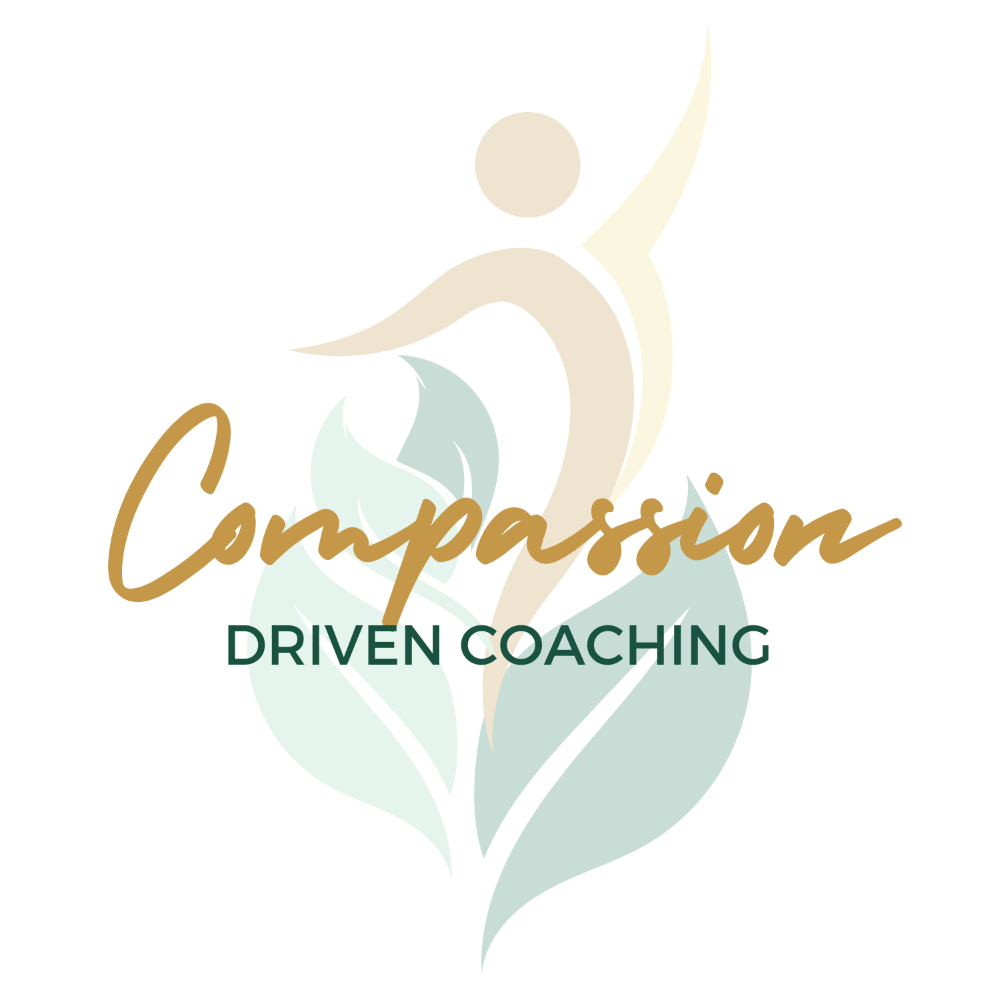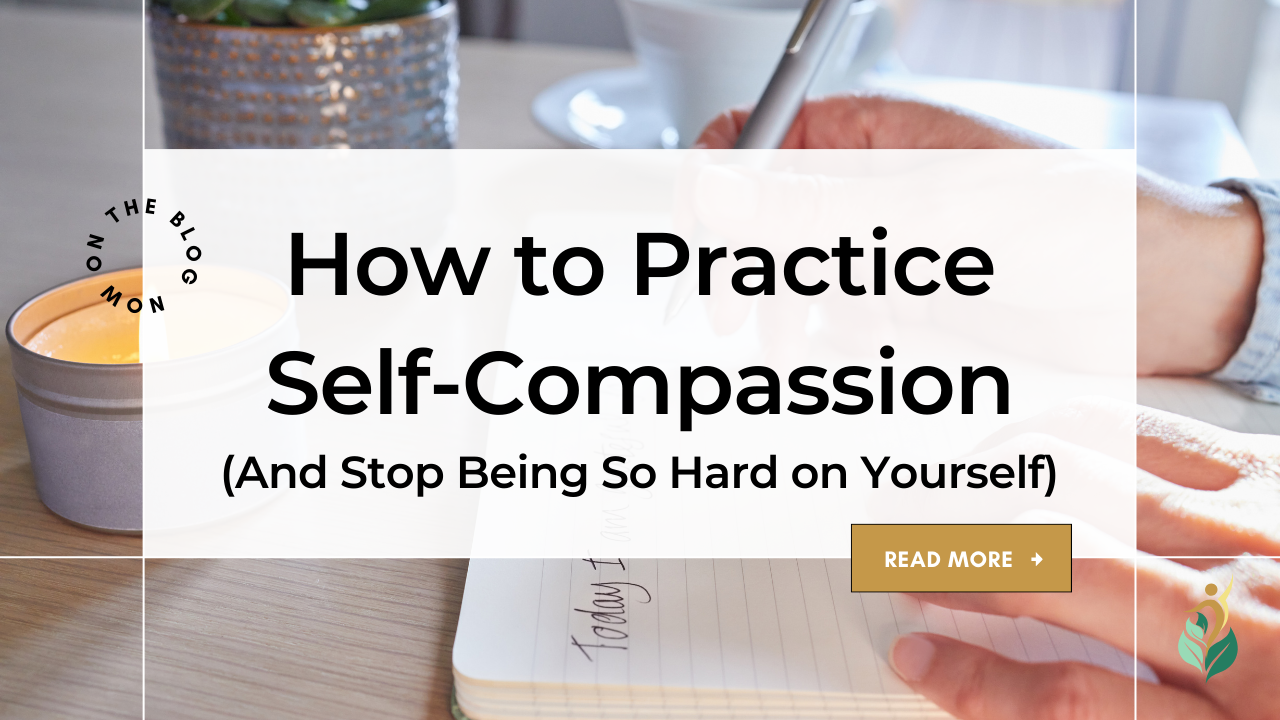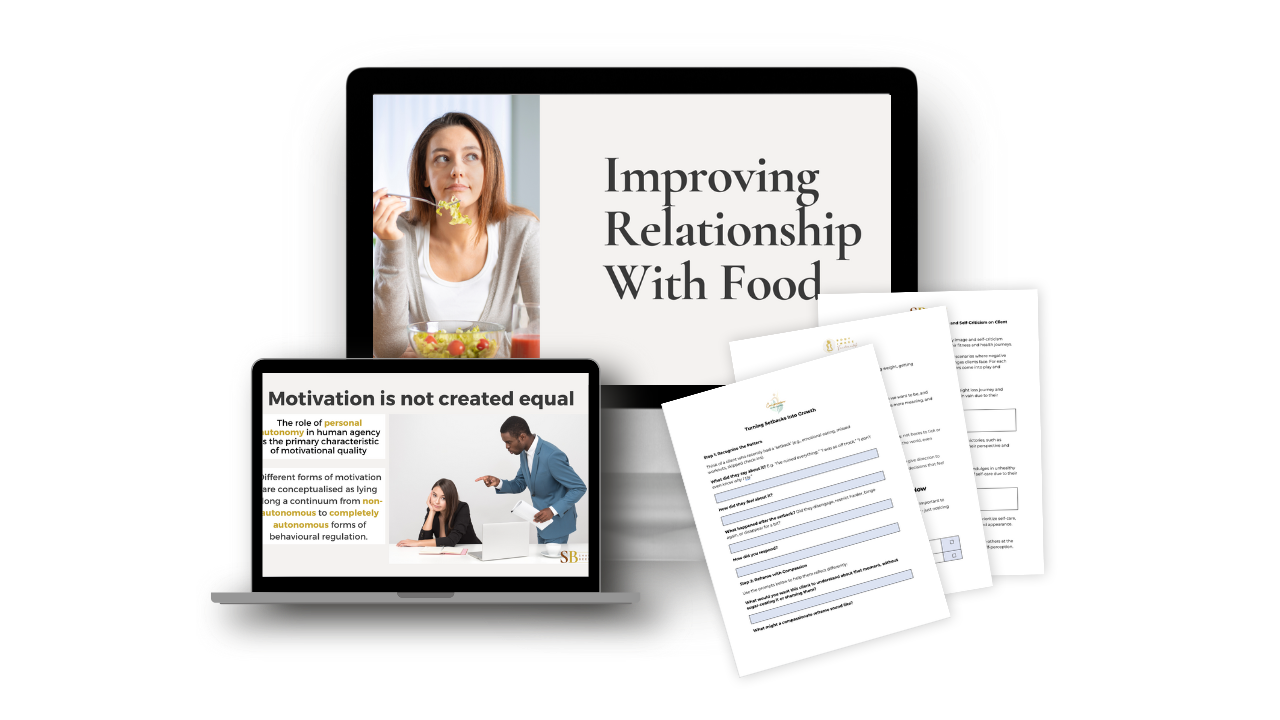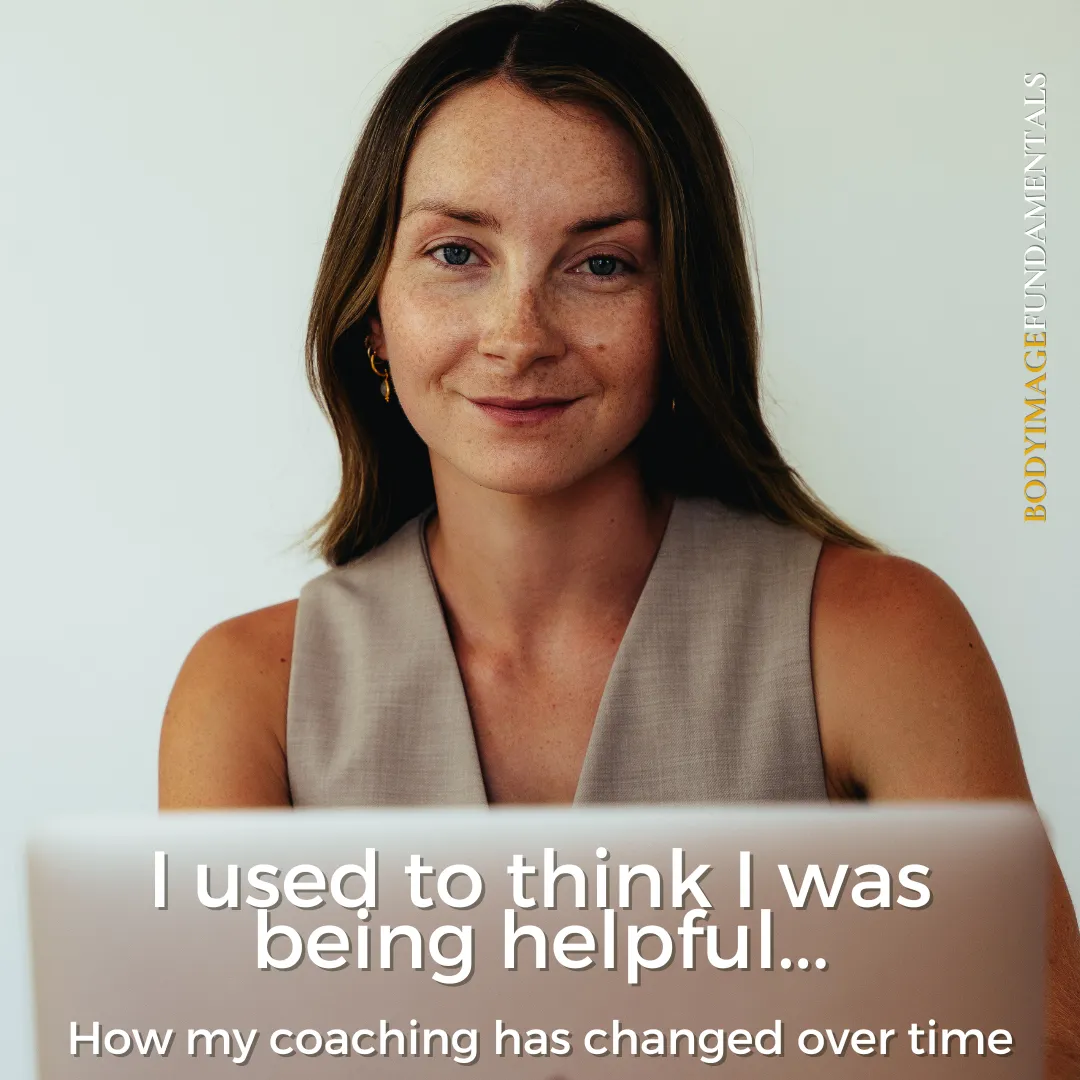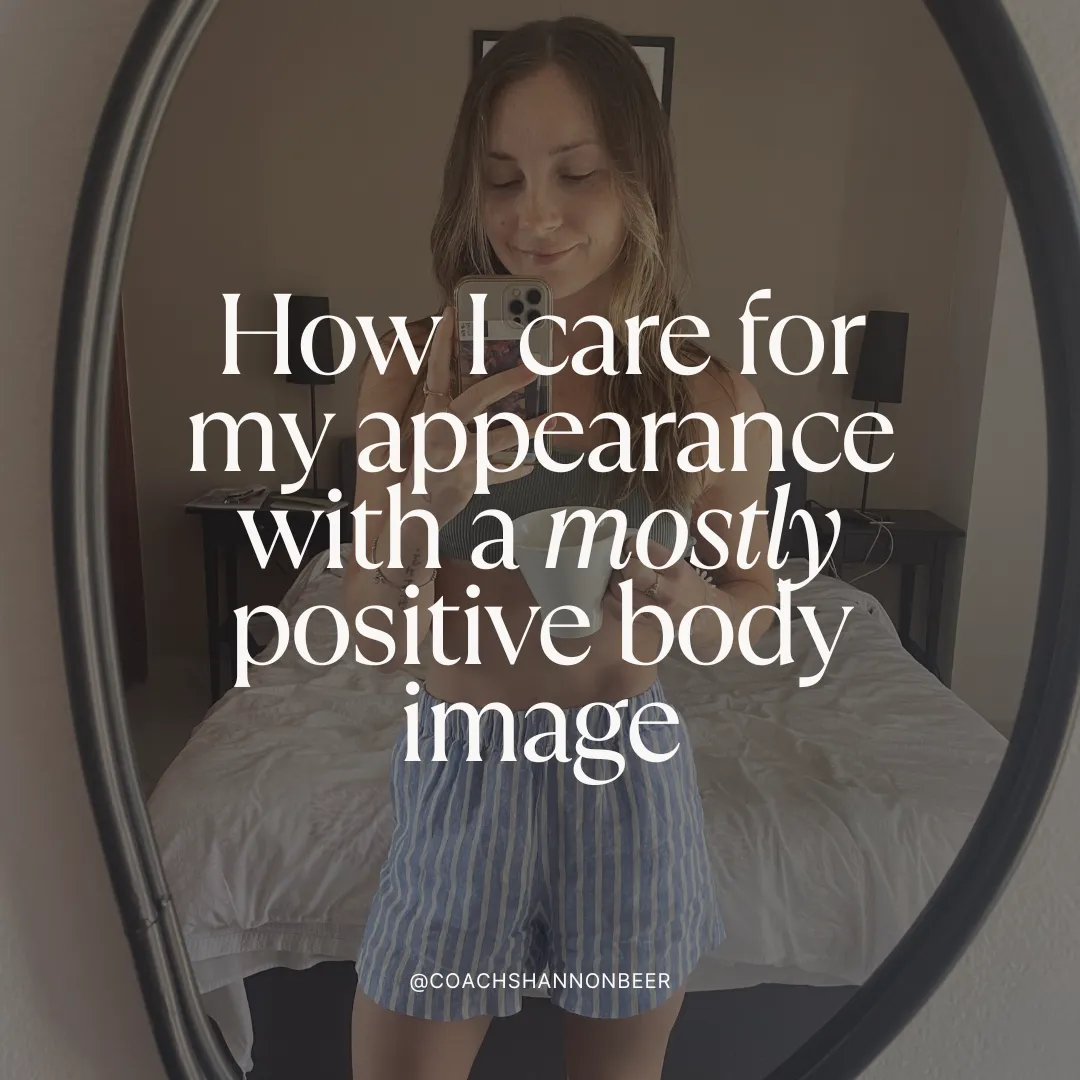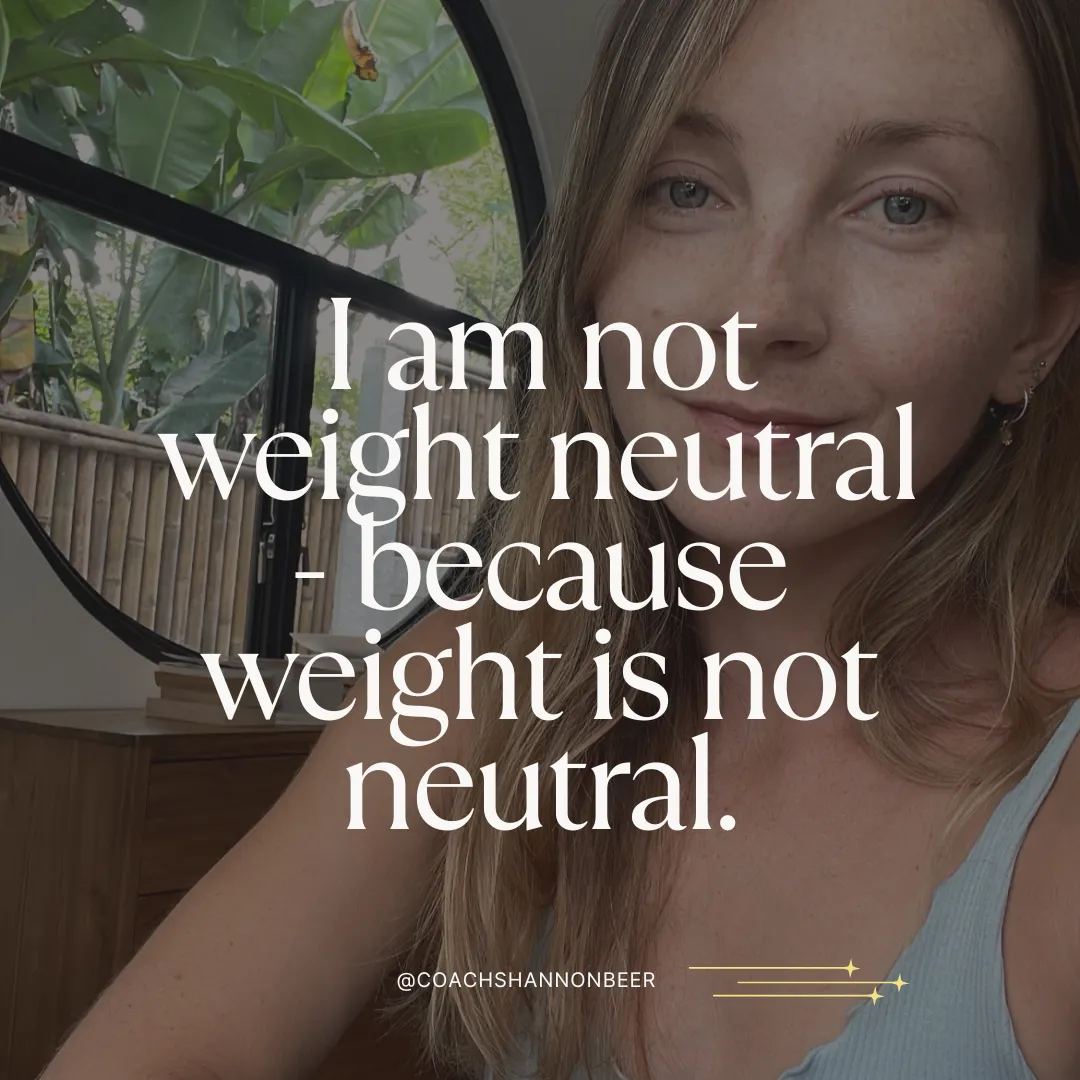A Guide To Clarifying Your Core Values: Who Do You Want To Be?
Jan 31, 2022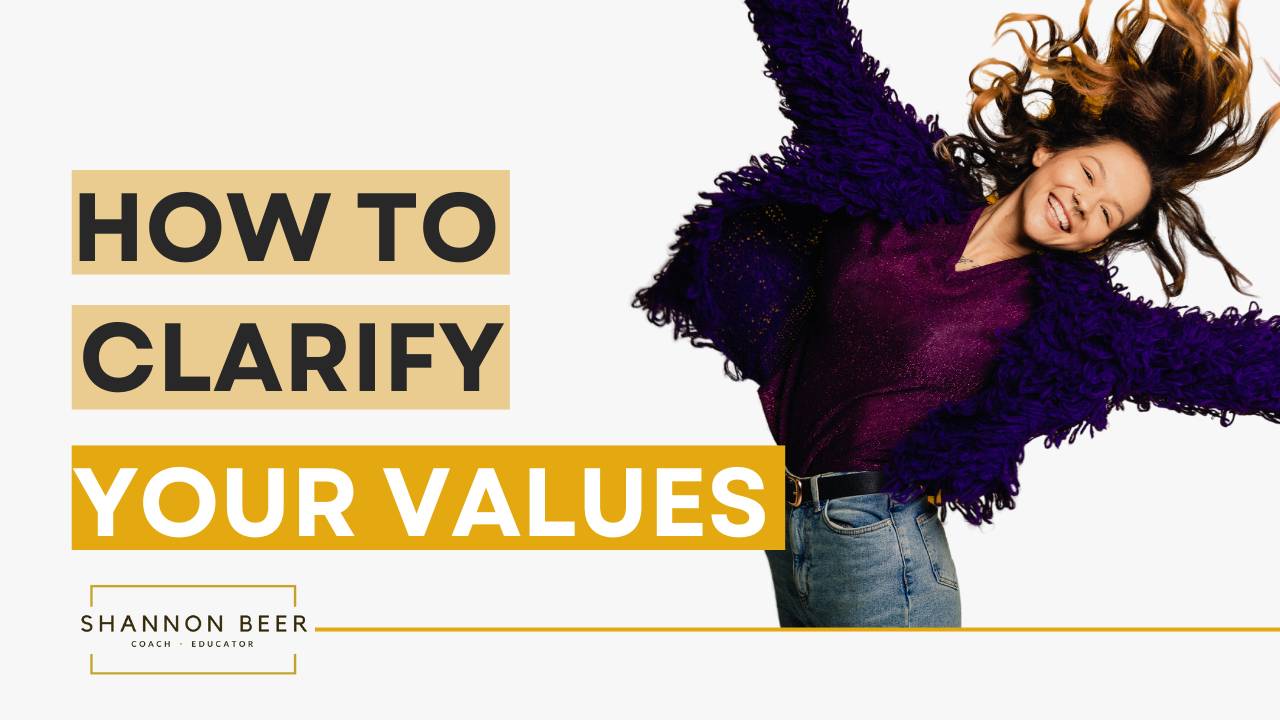
Most of us want to make changes to our physiques. Some of the most common reasons for dieting are to lose weight, look better, and build confidence[1]. Although there’s nothing wrong with wanting to change our bodies, it is easy to forget that we are human beings, not just ornaments to look at. Whilst we work towards our physique goals, it’s helpful to think about who we want to be and how we want to live, not just how we want to look.
Easier said than done, I know.
Most of us feel pressure to look a certain way, whether that comes from our friends, our family, or the hot bodies we compare ourselves to on Instagram. It’s easy to fall into the trap of changing ourselves because we don’t like how we look. We’re tempted to believe that if we just achieved our ideal body, we’d be confident about ourselves and finally stop comparing ourselves to others.
If these are the only reasons we can focus on when working on our physique goals, it means we’re changing from a pretty negative place. It doesn’t tell us much about the kind of person we want to be, it just tells us what feelings we want to avoid.
Studies have shown that being motivated in one’s dietary choices by mood or by weight control leads to pretty poor outcomes [2], [3], [4] even though this is usually a big part of the reason behind why we want to change. You might be thinking ‘Yeah but I still don’t like how I look and I still want to diet and drop fat’. That’s okay. I’m not suggesting that we can all magically change our thinking overnight, but we can certainly think about some more positive reasons to change in addition to your current motivations. The more reasons you have to make a change, the more likely you are to be successful.
This is where values come in.
Have you ever stopped to think about what is really important to you? The type of person you want to be?
Our sense of self is an important part of who we are but most of us have never really thought about this in detail. When we think of ourselves, it’s easy to focus solely on our bodies since that’s what we can see in the mirror. Yet we have so much more to offer the world than simply how we look. What else have you got going for you?
Values are statements about how you want to behave or act on an ongoing basis; how you want to treat yourself, others, the world around you [5], [6]. They are not about what you want to get, have, achieve or complete. Values are distinct from goals, in that they cannot be ‘checked off’ a list. Values establish the direction you want your life to head and goals serve as markers to help you navigate and let you know whether you’re still on course. Being rigidly attached to our goals may create issues if the function of the goal changes, such as when 'training hard' becomes less about challenging ourselves and more about punishing ourselves for the food we've eaten, for example. Values are more flexible and allow us to pivot when necessary.
Other characteristics of values:
- They are freely chosen and have not been imposed on you.
– They are ongoing rather than fixed.
– They guide you rather than constrain you.
– They allow you to get closer to the way you want to live your life.
– They bring you freedom from social comparisons.
– They foster self-acceptance, which is crucial to mental health. [7]
We all have values but we are not always fully aware of them and often we act on autopilot. Sometimes we end up doing, saying or thinking things that aren’t in alignment with how we really want to be.
As Camus put it: “If we believe in nothing, if nothing has any meaning and if we can affirm no values whatsoever, then everything is possible and nothing has any importance.”
Getting clear on your values is the first step to paving a more meaningful direction. You can use this list to help you think about your own values:
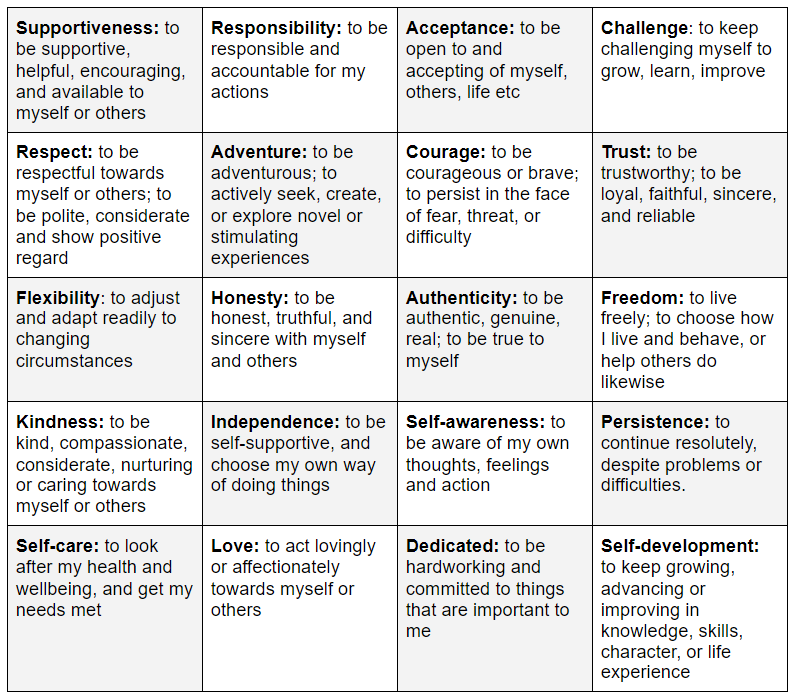
You can also ask yourself: How do you want people to remember you? When you die, do you really want your body to be the first thing, or the only thing, for people to remember about you? Or do you want people to think of you as someone who was generous, passionate, adventurous, dedicated to their goals…and maybe just so happened to have a nice body too?
Pick 3-5 values that are most important to you at this point in time and think about how your health and fitness goals support these values. Some of my personal values include courage, adventure, intention, strength and vulnerability. By taking care of my health, I have the strength and the energy to face challenges, go on adventures and do things that scare me.

Ft. A recent adventure in the Tatra Mountains, Poland.
Now think about the actions that reflect these values. Knowing what is important to us doesn’t typically improve our lives, but acting in line with what is important to us does. Challenging myself in the gym is one action that reflects my value of strength, but so does standing up for myself, travelling on my own, or supporting my friends when they need me. The point is, there are many different ways for you to live according to your values.
If you chose self-care, for example, actions that reflect this may include: hitting the gym, going for walks, getting sufficient sleep, eating nutrient-dense foods, practising yoga, meditating, journaling, and so on. Keep in mind that this is not an exhaustive list, nor do you have to engage in all of these actions. You’re the one that gets to decide what actions you would like to take!
Now that you have thought about values and identified some actions that align with them, it’s time to set some goals. Whereas values are directions we head in, goals are concrete checkpoints along the way.
Continuing with the example of self-care, you may set the goal of practicing yoga twice per week. It’s good to get specific too. Think about when, where and how you will make this happen. ‘I will practice yoga for 20 minutes on Monday morning when I get out of bed’ is way better than having a vague idea that it would be nice to do yoga at some point. You can even initiate the goal in advance by choosing a specific video to guide your practice and by laying out your activewear the evening before.
It’s also a good idea to anticipate your obstacles. If you know that you’re always in a rush first thing on a Monday, then it may be hard to get your yoga session in. Perhaps you could do it on a different day, or you could get organised on a Sunday evening (and get to bed early!) so that you have time to follow through with your plan.
Read my goal-setting article HERE to help you set effective goals.
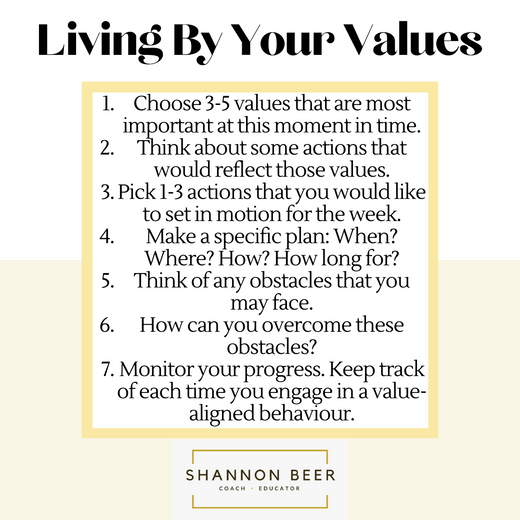
The best part is that, at any given moment, you can choose to act on your values, or not. If you missed a planned workout because you got caught up at work, no worries, you can still engage in your value of self-care by making sure you get enough sleep tonight.
If we’re too caught up in how our bodies look, we risk not paying attention to all of the other important things in our life. We often find that we’re not happy until we reach our weight loss goals and this makes it a hell of a lot harder to stay on track. By thinking about our values in addition to our weight loss goals, we are just giving ourselves more reasons to change.
Living by your values is an ongoing process - you can never permanently fail.
References:
[1] Silva DFO, Sena-Evangelista KCM, Lyra CO, Pedrosa LFC, Arrais RF, Lima SCVC. Motivations for weight loss in adolescents with overweight and obesity: a systematic review. BMC Pediatr. 2018 Nov 21;18(1):364. doi: 10.1186/s12887-018-1333-2. PMID: 30463551; PMCID: PMC6247735.
[2] Cruwys T, Norwood R, Chachay VS, Ntontis E, Sheffield J. "An Important Part of Who I am": The Predictors of Dietary Adherence among Weight-Loss, Vegetarian, Vegan, Paleo, and Gluten-Free Dietary Groups. Nutrients. 2020;12(4):970. Published 2020 Apr 1. doi:10.3390/nu12040970
[3] Lanoye A, Grenga A, Leahey TM, LaRose JG. Motivation for weight loss and association with outcomes in a lifestyle intervention: comparing emerging adults to middle aged adults. Obes Sci Pract. 2018 Dec 4;5(1):15-20. doi: 10.1002/osp4.313. PMID: 30847223; PMCID: PMC6381300.
[4] Schaumberg K, Anderson DA, Anderson LM, Reilly EE, Gorrell S. Dietary restraint: what's the harm? A review of the relationship between dietary restraint, weight trajectory and the development of eating pathology. Clin Obes. 2016 Apr;6(2):89-100. doi: 10.1111/cob.12134. Epub 2016 Feb 3. PMID: 26841705.
[5] Harris, R. (2008). The Happiness Trap: How to stop struggling and start living. Boston, MA: Trumpeter.
[6] Harris, R. (2019) ACT Made Simple: An Easy-To-Read Primer on Acceptance and Commitment Therapy (Second Edition). New Harbinger Publications.
[7] David, S. (2016) Emotional Agility: Get Unstuck, Embrace Change and Thrive In Work and Life. New York: Penguin Random House.

Stuck In All Or Nothing Mode?
Your mind isn’t broken; it’s just running on autopilot.
Take the free Emotion System Audit and learn what's driving your patterns - and what to do when you feel overwhelmed or out of control.
